10 Common Wolf Dog Behavior Problems + How to Solve Them
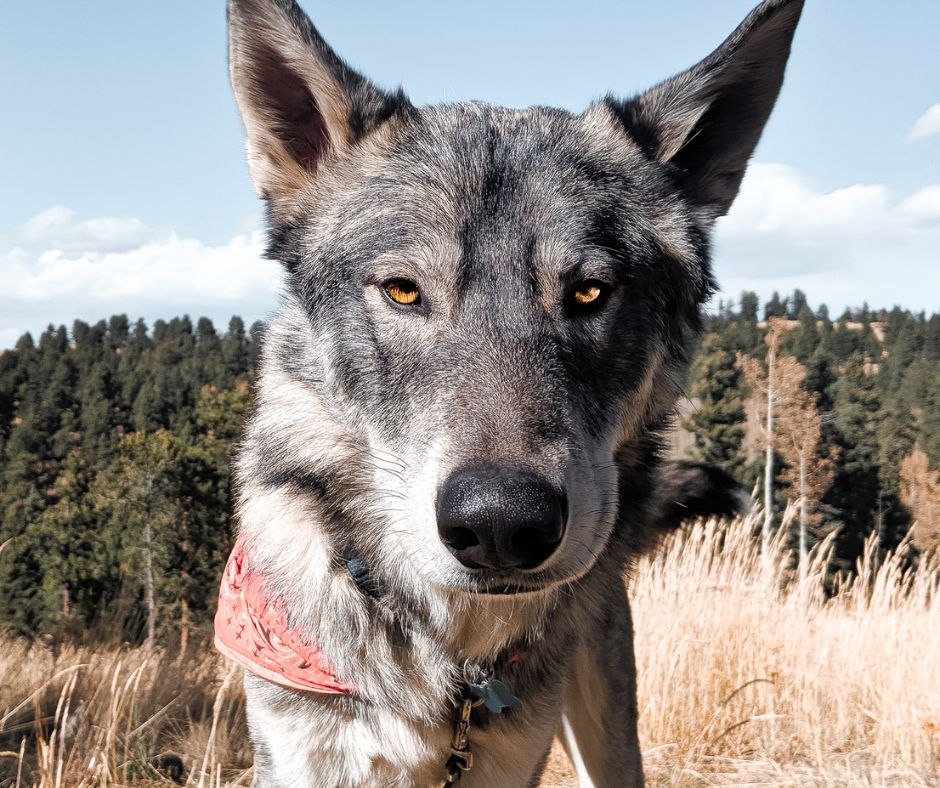
Wolf dogs are beautiful, unique animals that can make great pets. However, they can also be quite a handful (trust us, we know!).
Because of their wild heritage, wolf dogs often exhibit behaviors that their owners find challenging.
From destroyed furniture to growling at you to relentlessly howling, wolf dog owners have to be prepared for anything.
In this blog post, we’ll discuss some common wolf dog behavior problems we’ve encountered living the last four years with our wolf hybrid and how to solve them.
Table of Contents
ToggleFirst, Let’s Understand Wolf Dog Temperament
Wolf dogs can be incredibly loyal and loving companions, but they can also be headstrong and challenging to train.
We’ll take a closer look at wolf dog temperament and how it relates to some common behavior problems.
The first thing to know about wolf dogs is that they are very intelligent. They are also very independent, which can make them difficult to train.
Wolf dogs need a lot of exercise, both mental and physical. If they don’t get enough stimulation, they can become bored or frustrated, which can lead to destructive behavior.
Be Consistent in Your Training
One of the most important things you can do when training your wolfdog is to be consistent. If you are inconsistent in your commands or in the rules you set, your wolfdog will quickly learn that they can get away with disobedience.
Set clear rules and stick to them every time. This will let your wolfdog know that you mean business and that they need to listen to you.
Use Positive Reinforcement
When your wolfdog does something you approve of, be sure to give them positive reinforcement in the form of treats, petting, or verbal praise. This will let them know that they are behaving in the way you want them to and will encourage them to continue doing so.
On the other hand, if your wolfdog does something you don’t approve of, don’t give them any attention at all. This includes both positive and negative attention; if they see that misbehaving gets them a reaction from you, they’ll continue doing it just for that reason.
Another tactic is to use verbal words if they disobey such as “you are blowing it” or “you blew it” and put them in a short time out, whether that be 10 minutes in a crate or placed outside—don’t let too much time lapse as they will forget why they are in a time out.
Be firm but fair
It’s important to be firm with your wolfdog when training them, but it’s also important not to be too harsh. If you are constantly yelling at them or punishing them excessively, they will only become more aggressive and difficult to train. Find a happy medium between being too lenient and too strict, and stick to it. This way, your wolfdog will know that you mean business without feeling scared or threatened by you. Simply put, never be harsh, use words and tone, never yell at them.
Common Behavior Problems in Wolf Dogs (and how to solve them)
1. Uncontrollable Howling
One of the most iconic wolf dog behaviors is howling. But did you know that howling is a natural instinct for wolves and wolf dogs? It is used as a form of communication between members of a pack.
Wolves howl for many different reasons. They may howl to gather the pack for a hunt, or to call the pack back together after a successful hunt. They may also use howling to warn other packs off their territory. In addition, wolves may howl in moments of joy, such as when they are reunited with a lost pack member. Wolves may also howl in mourning, as a way to honor a fallen pack member. Each of these different types of howling serves an important purpose. So the next time your wolf dog is howling, take a moment to appreciate the complex social communication that is taking place.
However, if your wolf dog is howling excessively, it may be time to reconsider his or her level of exercise, mental stimulation and socialization.
The first step in solving excessive howling is to figure out why your wolf dog is doing it. If they’re bored or lonely, try adding more toys and games into their routine to keep their minds active. Enrichment activities such as puzzle toys and scent games can also help alleviate boredom and reduce howling behavior.
2. Destroyed Furniture
Another common wolf dog behavior problems is destroyed furniture. Whether it’s chewing on the couch cushions or tearing up the rug, your wolf dog can wreak havoc on your home if you’re not careful.
The best way to prevent this problem is to provide your wolf dog with plenty of chew toys and bones. This will give them something to chew on instead of your furniture. You should also crate train your wolf dog so that they have a designated safe space when you’re not home. If you do find that your wolf dog has destroyed something in your home, be sure to stay calm and avoid yelling. This will only make the problem worse. Instead, calmly remove them from the area and provide them with one of their chew toys.
3. Resource Guarding
Resource guarding is when a wolf dog becomes overly possessive of an object or food and will not allow anyone else to approach it. This can be very dangerous because it can lead to aggressive behaviors such as biting.
The best way to prevent resource guarding is to hand-feed your wolf dog from day one. This will help prevent resource guarding altogether, as they will see you as their resource.
4. High Prey Drive
Another common behavior problem among wolf dogs is high prey drive. Wolf dogs are descendants of wolves after all, so it’s only natural that they would have a strong instinct to hunt smaller animals. If you own a wolf dog, it is important to be aware of this behavior and take steps to prevent it.
There are several things you can do to prevent your wolf dog from exhibiting high prey drive behaviors. The most important thing is to provide plenty of exercise and stimulation. A tired dog is a good dog! If your wolf dog has a lot of energy, he is less likely to be focused on hunting prey. Try taking him for long walks, hikes, or runs every day. You can also provide interactive toys and games to keep his mind active and engaged.
Another important step you can take is to socialize your wolf dog from a young age. The more exposure he has to different people and animals, the less likely he is to view them as potential prey. It is also important to avoid situations where your wolf dog feels threatened or cornered. This could trigger an attack response.
5. Notorious Escape Artists
As any wolf dog owner knows, these animals are extremely intelligent. Unfortunately, they often utilize their intelligence to escape. Whether that’s jumping over fences or digging tunnels, wolf dogs will find a way out if they’re not properly secured. Believe it or not, wolf dogs locked in rooms have even been known to chew through a wall to get out. And once they’re out, they may be difficult to catch due to their speed and agility. This can obviously be very dangerous if your wolf dog escapes into a busy street or park.
There are a few things you can do to keep your wolf dog from escaping. First, make sure your fence is tall enough. Six feet is usually sufficient, with lien-ins but for particularly determined (or large) wolf dogs, you may need to go even taller. Second, bury the fence at least a foot into the ground or lay down dig guards made of chain link or cattle panel to prevent your wolf dog from digging underneath it. You may also want to consider keeping your wolf dog in a kennel when you’re not home to supervise them. This will ensure they can’t escape and get into trouble when you’re not around. Last, you may also want to invest in a GPS tracker so you can quickly find your wolf dog if they do happen to get out accidentally. Continue working on obedience training with your wolf dog so they will respond when you call them back home.
6. Growling
It’s not uncommon for Wolf Dogs to growl if they feel threatened.
The best way to deal with this problem is through training and socialization. You should start training your wolf dog as early as possible so that they learn proper manners and behaviors. You should also have them meet new people on a regular basis so that they’re comfortable around strangers. If you find that your wolf dog is growling at someone, calmly give them a command (such as “sit” or “stay”) Be nice and provide them with a treat if they obey. This will show them that there’s nothing to be worried about and that they’ll be rewarded for good behavior.
7. Separation Anxiety
Unlike most dogs, who are content to curl up on the couch or in their beds when their owners leave them alone, wolf dogs often become anxious and agitated when left by themselves. This can manifest in a variety of ways, including howling, pacing, destructive chewing, and even escape attempts. If your wolf dog is exhibiting any of these behaviors, it’s important to take action immediately. The longer you wait, the more entrenched the behavior will become.
One way to start solving separation anxiety is by trying to get your wolf dog used to being alone for short periods of time. Start by leaving him alone for just a few minutes at a time and gradually increase the length of time you’re away. While you’re gone, make sure he has plenty of things to keep him occupied, such as chew toys and food puzzles. You should also try to keep your comings and goings as low-key as possible; if your wolf dog gets excited every time you leave or come home, he’ll only become more anxious in your absence.
8. Relentless Pacing
If your wolf dog paces back and forth incessantly, it’s likely due to boredom or frustration. Again, it’s important to take action quickly to prevent the behavior from becoming entrenched.
The first step is to provide your wolf dog with more mental stimulation during the day. This can include interactive toys and games, training sessions (both obedience and trick training), and daily walks or runs. It’s also important to give him plenty of opportunities for socialization; if he’s left alone for long periods of time with no canine companionship, he’s likely to become bored and frustrated.
9. Digging Holes & Destroying Backyard plants
If you’re the proud owner of a wolf dog, you might be familiar with some of the common behavior problems that can come with the territory. Namely, digging, destroying plants, and general destructiveness. They may dig for many reasons, including boredom, curiosity, or the instinct to burry things. While these behaviors are common, they’re certainly not desirable. So what can you do to curb them?
The first step is to wolf-proof your yard as much as possible. This means keeping anything that your wolf dog might deem chew-worthy out of reach. This includes plants, trees, shrubs, and any other greenery in your backyard. You should also make sure that there’s nothing buried in your yard that your wolf dog might be tempted to dig up.
If your wolf dog does manage to get ahold of something they’re not supposed to, like a plant or tree branch, it’s important to take it away from them immediately and discourage them from chewing on it. You can do this by taking away the shrubbery and giving them something they are allowed to chew on instead. You might also consider providing him with a sandbox or digging pit where he can dig to his heart’s content.
10. Your Wolfdog Plays Too Rough
One of the joys of owning a wolf dog is watching them play. They are such active and intelligent animals that it’s no surprise they’re often compared to wolves in the wild. However, as any pet owner knows, not all play is created equal. Some games are more destructive than others, and if not properly monitored, can lead to serious behavioral problems down the road, and they can inadvertently hurt you when they get too excited.
If you have a wolf dog, you may notice that he plays a little rougher than other dogs. This is perfectly normal behavior for a wolf dog, but it can be a problem if he gets too rough and starts to mouth or nip at you. If this happens, you can use a high-pitched “ouch” to let him know that he’s playing too hard. If he stops, be sure to praise him so that he knows he’s done the right thing. However, if he doesn’t stop, simply walk away. He’ll soon learn that if he continues to play too roughly, he’ll lose your attention and won’t be able to play with you.
Final Thoughts
Wolf dogs are beautiful, unique animals that can make great companions. However, they often exhibit behavior problems that their owners find challenging. Dealing with behavioral problems can be tough, but it’s important to remember that every wolf dog is different. What works for one may not work for another. The best thing you can do is remain patient, consistent, and firm in your commands. With time and patience, you should be able to successfully train your wolf dog and enjoy a happy life together!
Do you have any helpful tips you want to add to this list? Let me know in the comments below!

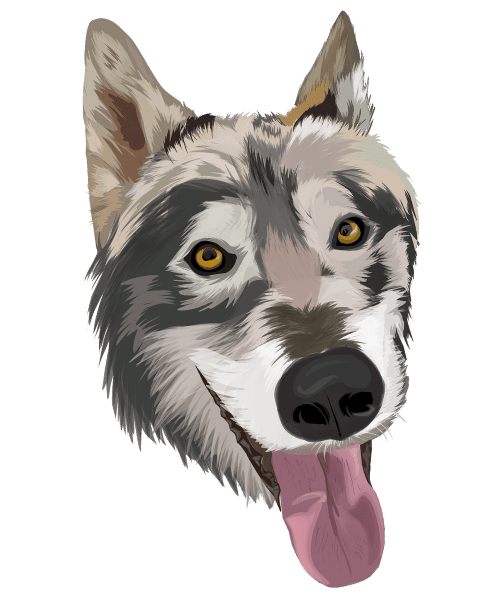
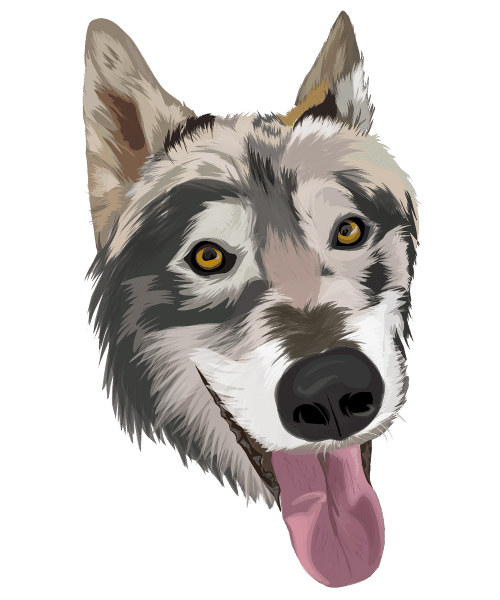
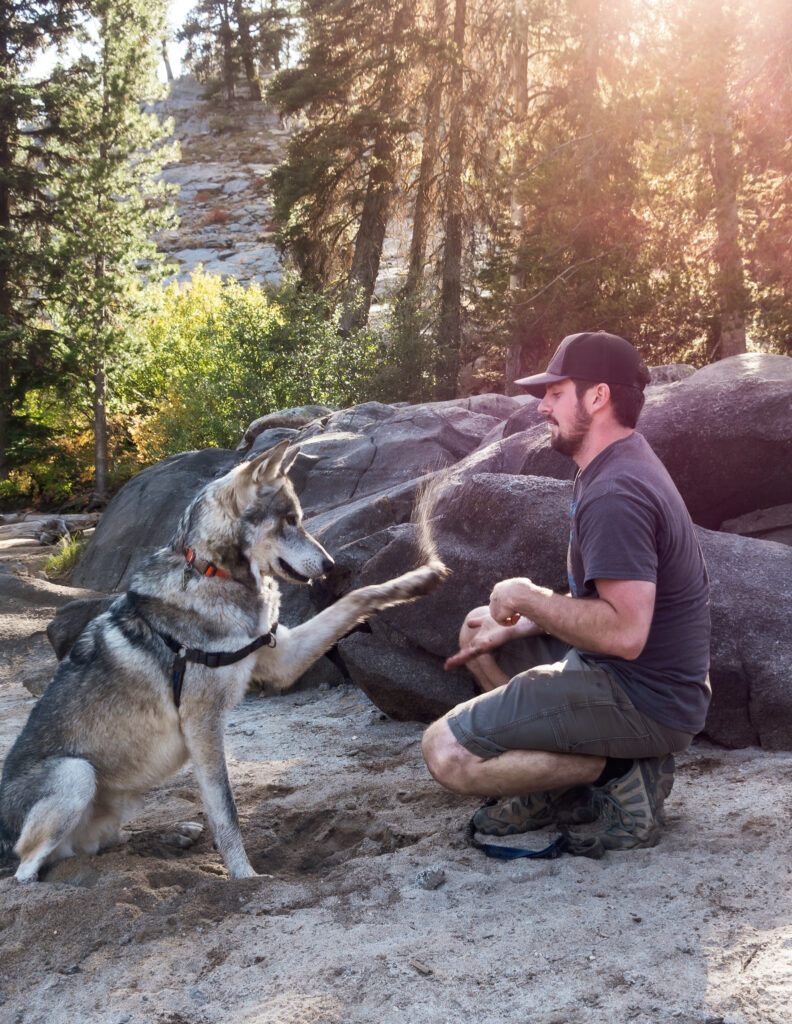
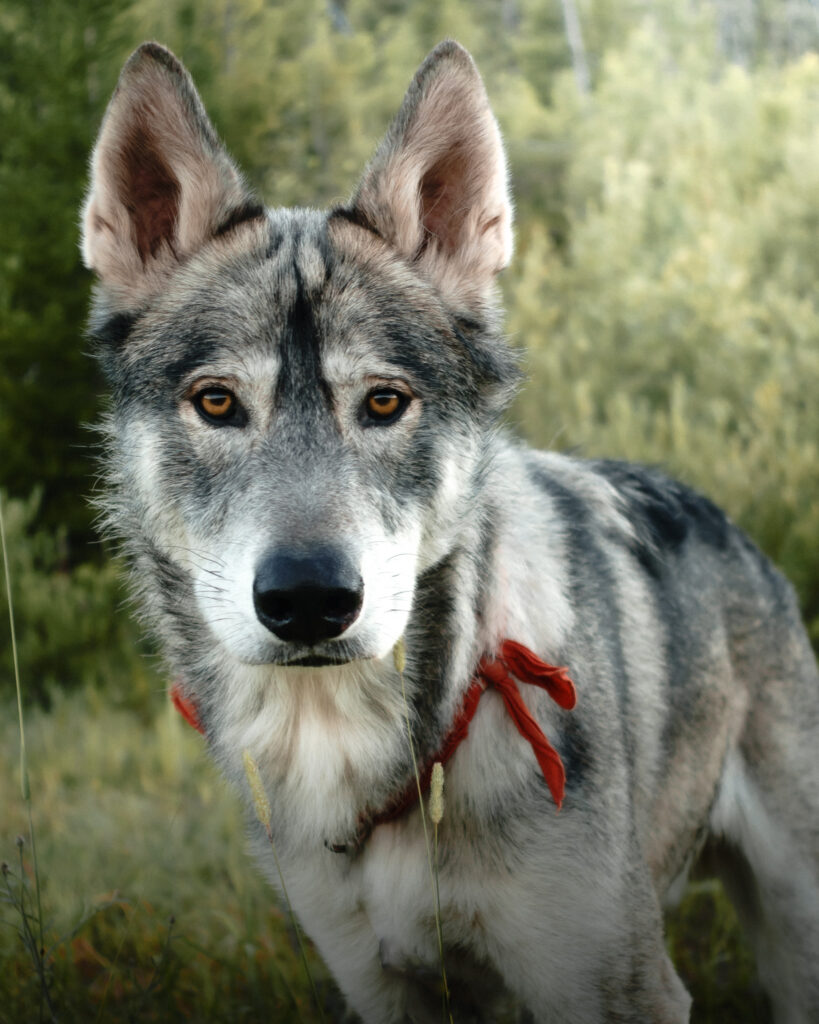
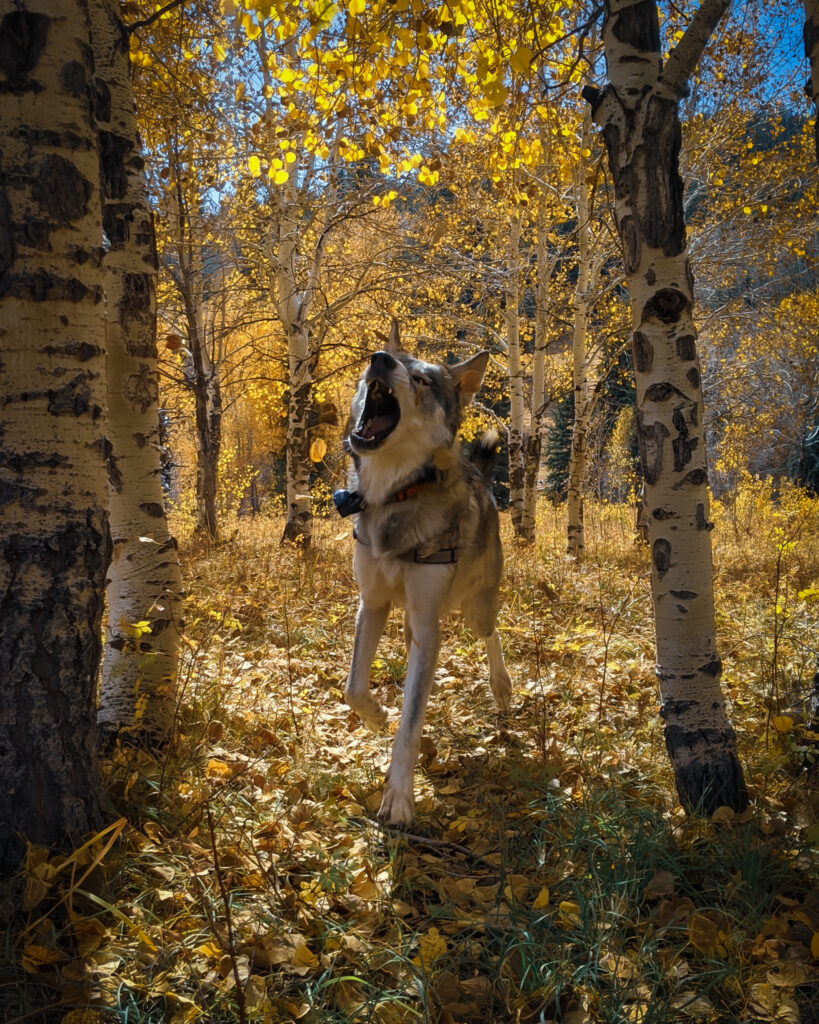
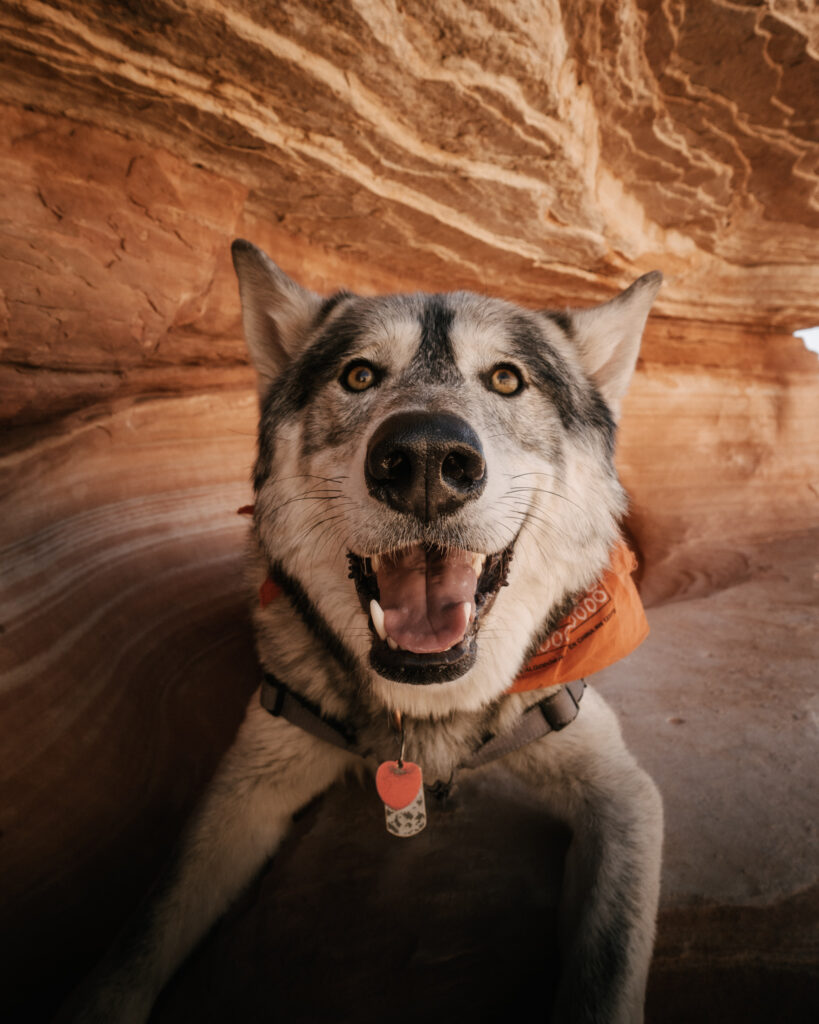
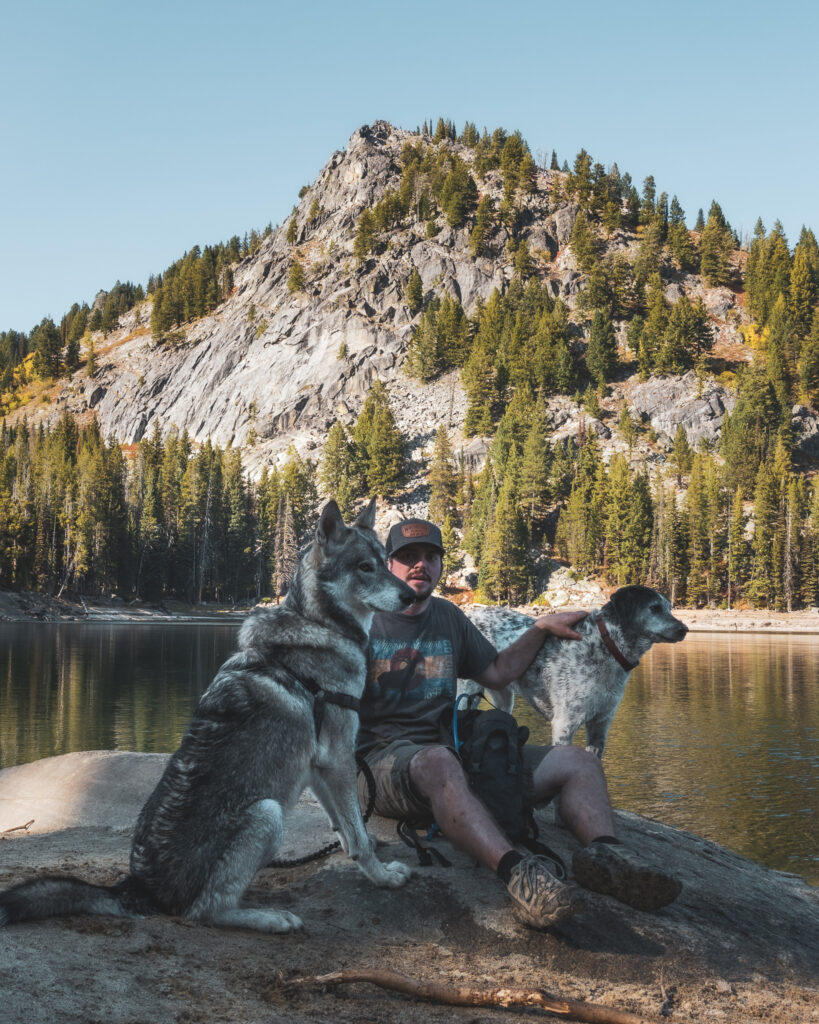
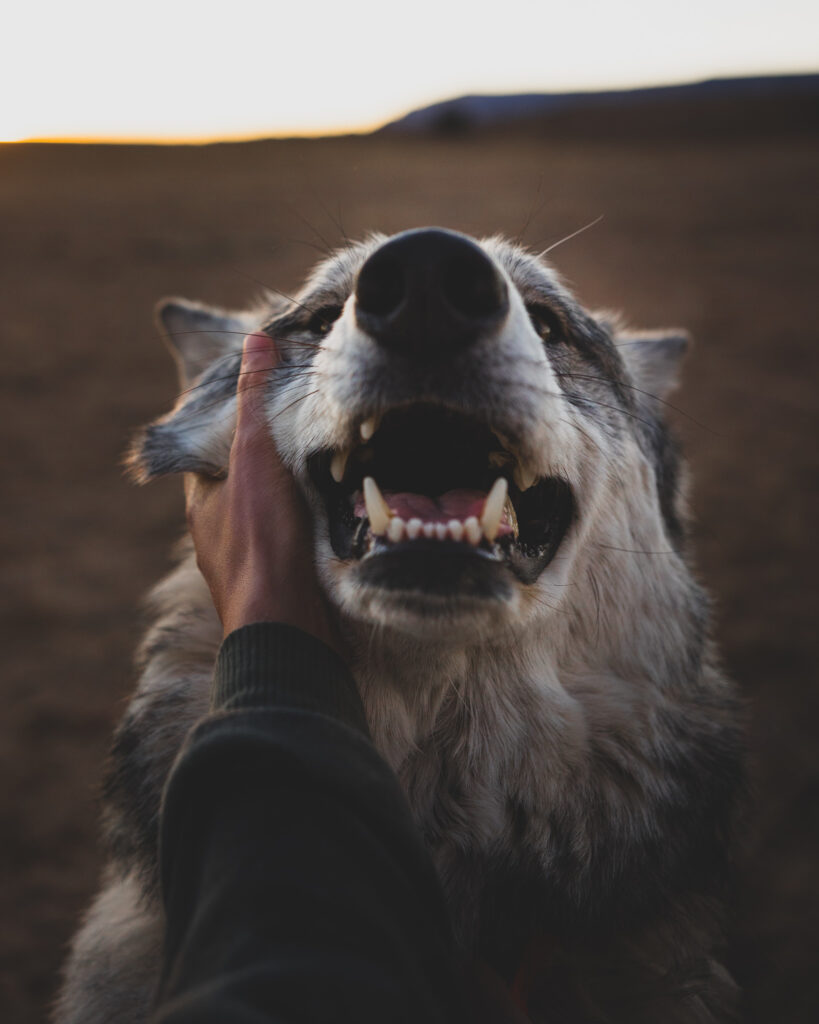
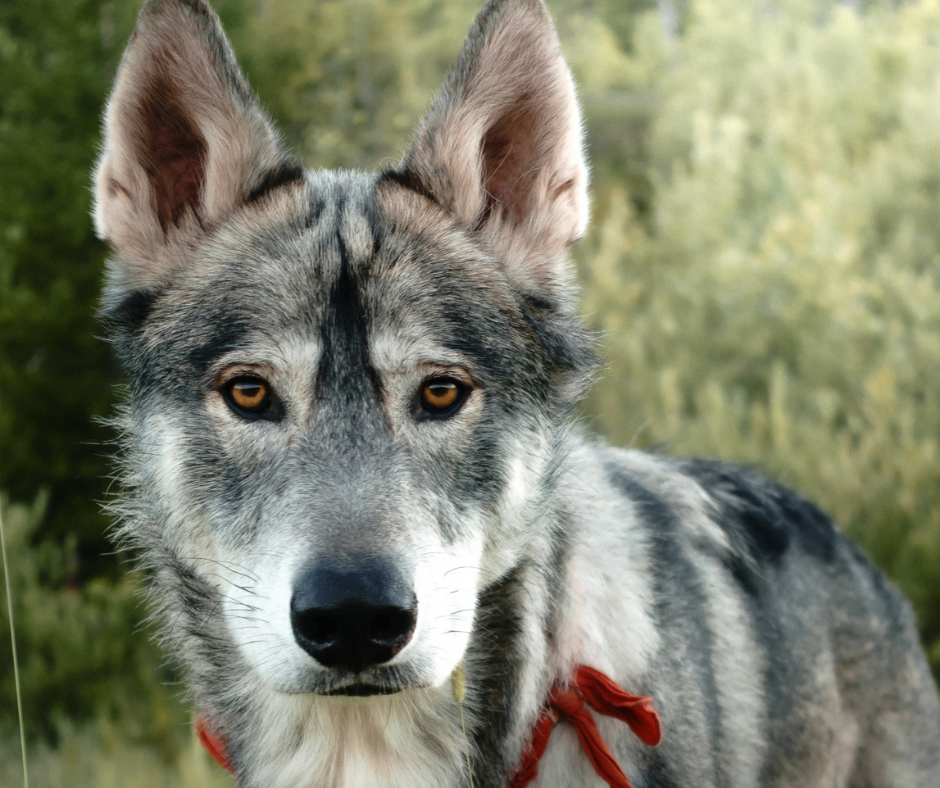
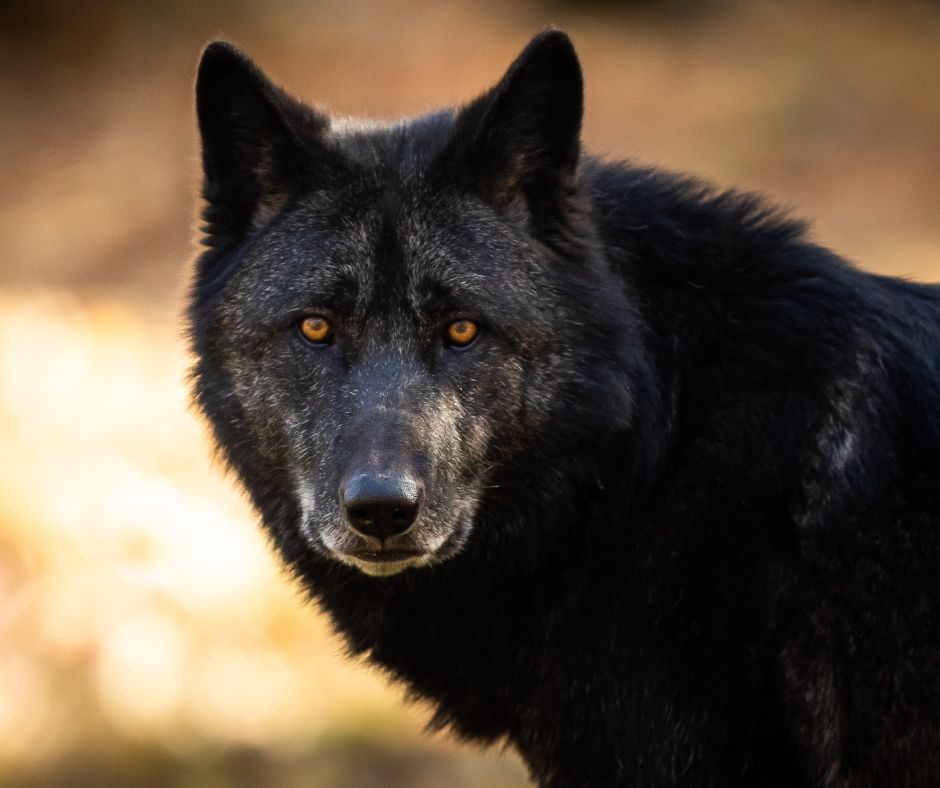
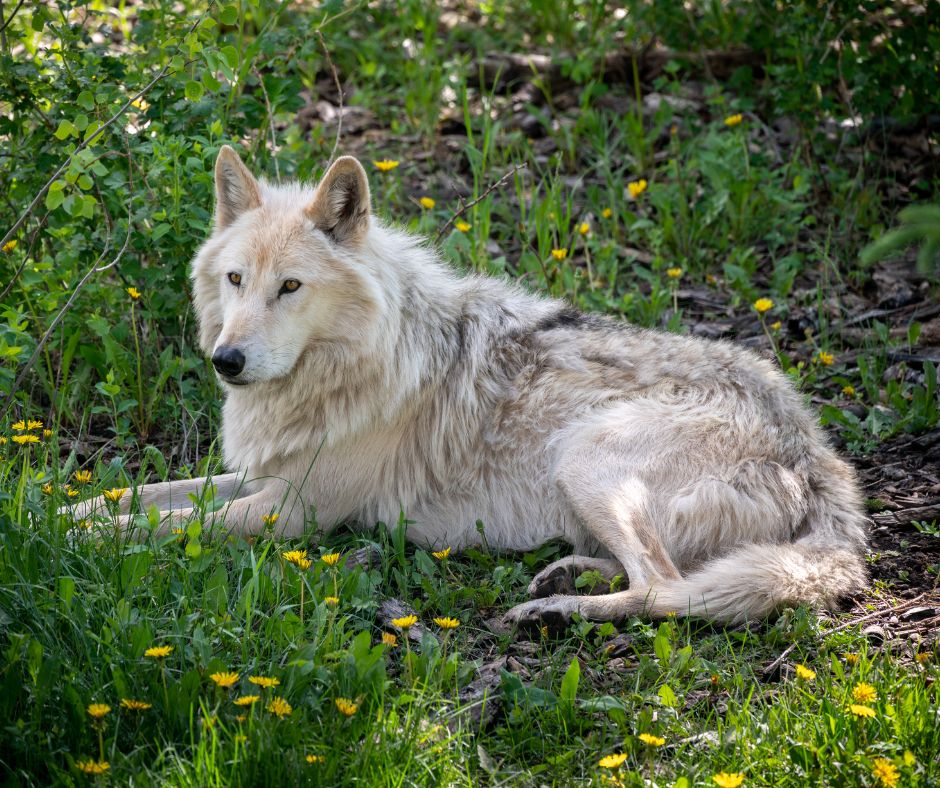
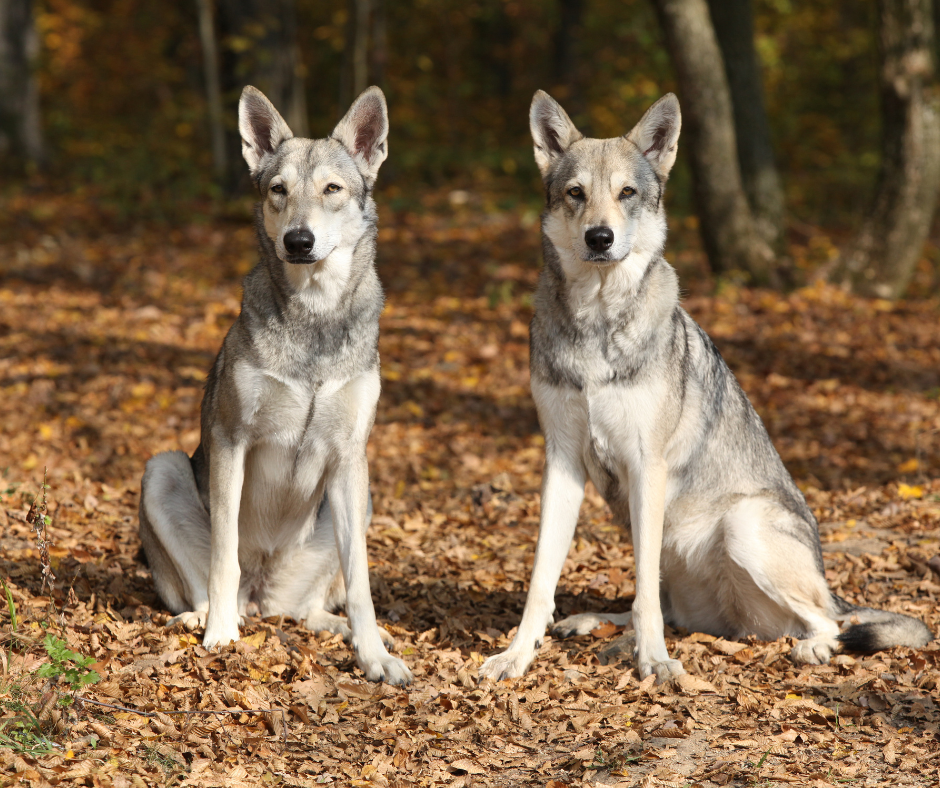
I am having so much aggression problems with my 2 yr old neutered male wolfdog that I am at a loss. I am 70 and have had 2 leg surgeries which have really thrown our training off. He is bored and I know it but can’t ambulate much right now. Help
Kathy, I’m sorry to hear that you’re having aggression problems with your wolfdog. It sounds like you’re going through a tough time with your leg surgeries as well. Can you provide more details on the specific types of aggression you’re experiencing with your wolf dog?
It’s important to make sure your pup is getting enough exercise and mental stimulation, especially since you’re unable to walk him daily. Have you considered hiring a dog walker or pet sitter who can take your wolf dog on daily walks or provide other types of physical and mental exercise? This can help alleviate boredom and reduce the likelihood of aggressive behavior.
I am sorry for such a time lapse with my response. I am still not able to walk with much weight on my leg so my shepherd and wolf dog are still being neglected and thus bored. When I am feeling good I need to walk them daily along with car rides. I also play hide and seek with them and have several treat holding containers that makes them work for the treats. He also just stands in front of us when we are trying to watch tv or read and stares at us and whines. I am guessing he wants to do something. It is so hard to get him to lie down and just chill. Another of my problems with Odin is he likes to stand over me and try to lick my lips plus he does little front teeth nibbles on my mouth. I believe thru reading this is a wolf dog characteristic. Took us 1 1/2 yrs to housebreak both for the house and the car(which was an unbelievable problem) and I know it was caused mostly by anxiety.. just kept taking him places. I also lost the battle with crate training because he never tolerated it, no matter how long we’d put him in it. I know one problem is that Odin feeds off of our very high energy shepherd and it is hard to contain that anxiety. Can’t separate them where we live now so very hard to get them manageable. Any ideas. I have an idea for poor recall and it works great with Odin. I have a 25’ lightweight nylon rope that is attached to his collar so I can step on it easily (be careful for rope burns on your hands) if he doesn’t come and you wouldn’t believe how fast he has figured it out and I have control over him. He is so much better now that I just have him drag a leash for his safety
Our wolf dog is great but if she gets out of leash she will run will not come to us. She will stay around us keep us in sight but won’t come. How do I get her to come to me when she gets loose.
Hi Greg, it can definitely be challenging when our wolf dogs get loose and don’t come back right away. One strategy you could try is using high-value treats to motivate your dog to come to you. (Cruze LOVES butter and will do anything for it). Consistent training is also key. Make sure you’re practicing recall regularly. Another factor to consider is your wolf dog’s age. As they get older, their recall improves. One fun, and kind of ridiculous game we play with Cruze is hiding from him when he doesn’t come when called. For some reason, this has reinforced the idea that if he does not come to me, he’ll have to come looking. And when he does find me, I reward him with lots of love, praise, scratches and then leash him up!
Hi I have rescued a Wolf dog . He was rundown a busy street and was very sick when I got him.
He always has thrown up a little. So he dose have stomach issues. I have him on hills science sensitive stomach wet and dry dog food. Which he usually eats. No table food or any other food except boed chicken . Which he sometimes eats or doesn’t eat.. I take him to dog park to run and social with other dogs. Try and take him every day for at least 2 to 3 hours.
I took him to vet to get his up to date vaccines. 1 flu and one Leptosis . I don’t know how to spell that. But they gave those 2 shots and a dose of Bortella which he did not need cause I already had it given prior at another Vet for 6 months. So I even showed the front desk lady the papers telling her only needs flu and Lept. Well they gave Bortella too. That was on Tuesday. Meanwhile he had be throwing up bile. Now the vomit is clear but he is not eating for 2 days now. He dose drink water and goes pp. His stools are loose but a nice light brown color. No blood.
I am going to try probiotics .
But can you please help on what else I can do to make him get better naturally.
Also I will try and give him boiled chicken and white rice. Just a little at first to see if he will even eat it.
Do you have any advice for my poor BEAUTIFUL WOLF DOG. I hot my MINGOH in March of 2018 he still had his puppy teeth. He has come a long way. But I am still working with him.
Please help. So he feels better.
My 15 week old was a playful, energetic, young girl. I had some machinery at the house for a project and it’s like a switch was flipped. She became skittish, and fearful overnight. She constantly stares at the upper part of the house where the work was being done. She’s a little better after a few days but still not the same as before. I don’t know what to do about it.
I’m sorry to hear about your 15-week-old’s sudden change in behavior. It’s not uncommon for wolf dogs to become skittish or fearful after encountering loud and scary noises or sudden changes in their environment. It’s possible that the noise and activity triggered a fear response in her. Give her some time and space to adjust, and continue providing a calm and reassuring environment. Gradually reintroduce positive experiences and socialization to help rebuild her confidence. Show her that the space is safe and give her time to explore the area once the noise is gone.
Hi Nicoll. I’m dog sitting for my daughter and son-in-law. They have 3 wolf dogs. Mia a 5 year old female, the smallest of the 3. Jewels a 3 year old female the largest. And Ragnar, a 7 month old male that is already bigger than Mia. I’ve been watching them for 3 weeks with 2 more to go. The other day Jewels and Mia got into it pretty good. I’ve seen them play in the past but this was much much worse. I had to separate them with a broom. And shortly after that they went at it again. Jewels actually had Mia down with her mouth around Mia’s neck to the point that she could barely breathe. Thankfully she wasn’t hurt. For 3 days I’ve been keeping a watchful eye on those 2 and can still see times where Jewel wants to show her dominance over Mia. With a good stern no I can get her to reside but I can still see Jewels aggressive behavior toward Mia. Ragnar on the other hand gravitates toward Jewels. Mia is more calm and subdued than the other 2 and now looks like she’s walking on pins and needles. Ragnar the pup is having a hard time with potty training and has submissive peeing issues which I think is due to the power struggle between Mia and Jewels and the fact that they are all getting used to where they fit in with me.
Your thoughts?
Hi Bob, it sounds like you’re dealing with a challenging dynamic between the two females. The behavior you described between Jewels and Mia is indicative of a dominance struggle. In the wild, wolves establish a hierarchy within their packs, and this behavior can sometimes manifest in domesticated wolf dogs as well. However, it might be resource guarding, or territorial disputes. Have you notice the behavior escalates when one of them has a certain toy, or treat?
Since you are not their owner, I can see how this is tough to deal with. But what I can suggest is that if you notice escalating tension between Jewels and Mia, intervene and separate them to prevent any injuries. You may need to use a barrier or create separate spaces for each dog when you’re not actively supervising them. I would reward and praise the dogs when they display calm and appropriate behavior towards each other.
I hope this helps, but I am not a wolf dog trainer, so my knowledge and advice are limited. You can also reach out to Timber Mountain Training. They offer Wolf Dog training services and consultations and may be able to help you out! Best of luck!
I have 2 rescue wolfdogs, male 10 and female 8 years old. I have 3/4 ach fenced that they have never tried to breach until now, The female has started digging out under the fence line, I am reinforcing the dig zone. We live in a highly populated area and she will be killed by traffic if she continues. My question is this, does the urge to roam increase with age?